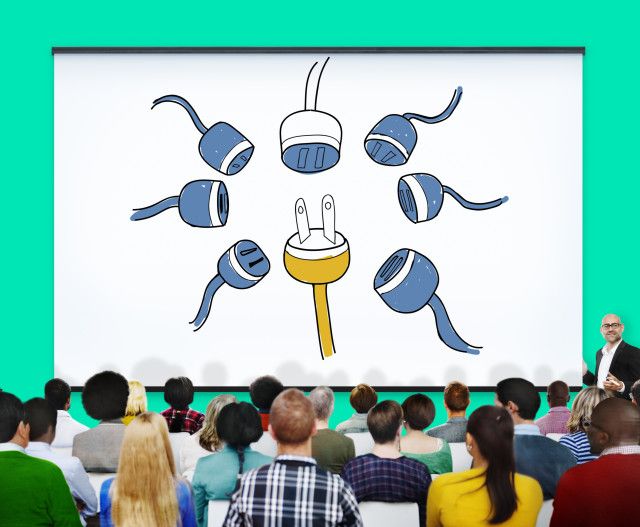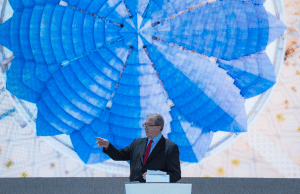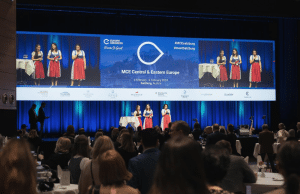The past year brought us quite a few reasons to remain positive, but unfortunately it also gave us good ground for a lot of pessimism too. Compared to the previous years marked by the economic recession the blood count of the meetings industry has improved: after a delay the better economic conditions influencing the development of the meetings industry have been showing their signs, especially when we’re talking about incentives and corporate meetings, while the associations market has traditionally been immune from the crisis. What official statistics don’t show, however, is the rise of homophobia, xenophobia and of all those who are moving beyond what is considered normal behaviour. What is most concerning with all this are the questions of tightening security that can quickly transform the current meetings champions into meetings pariahs.
Despite this, there are currently enough progressive forces and synergies in the meetings industry for the editorial team to sketch a picture of the key conceptual challenges that we have discussed with the important meeting players throughout 2015.

- Niche meeting destinations and products
The Congress world stands on niche destinations
Innovation takes place at the edges and with it new congress niches and products are coming to pass. In today’s world there are countless congress destinations and providers all hoping to succeed, so destinations that are settling for mediocrity will struggle to survive. The biggest challenge for them is to grasp that idea that nobody has yet thought of, to do something new, something daring and to persevere with it. We believe the future is bright for the New European destinations, as they are on the way to becoming the best in one of such niches.

2. The economic recession raises innovation
Are apps the future of the meetings industry?
It is said that crisis is the mother of invention, so in times of recession we tend to find hidden reserves and innovative thinking. Never before have there been so many innovative solutions available to event organisers as there are today. Many are creative but can still make that breakthrough. Creativity is not a requirement to work better, faster, cheaper or more – it is aimed at innovation. The winners of 2016 will be those who will intelligently connect creativity to innovation and use technology smartly. These are mainly an aid rather than a lever for changing the meetings industry, but change it they will.

3. Sharing Economy & Meetings
Who will be the Über of the meetings industry?
2015 has shown that change has never occurred so quickly and to such an extent as in the past year. Among the trends that may substantially change the competition are certainly the various forms of ‘economy sharing’ based on digitization of industries and sectors, which includes the niche meetings industry. Despite numerous attempts to date we have not yet seen the new business model emerge, but we believe that 2016 will bring the landmark shake-up in the meetings industry. Just think how Über has shaken up the taxi service business.

4. ‘Googlization’ of the meetings industry
Are you ready for a total ‘googlization’ of your meetings services?
It seems that today we no longer need to know a single thing or retain any knowledge, as everything can be googled. Knowledge is available anywhere, anytime. Google Play, Maps, Docs and Wallet are the seemingly inconspicuous services that are crowding out the old and seemingly ancient business models. It is therefore more necessary now to think about high-performance mobile and internet networks and the best bandwidth. The network of the future will have to provide transmission speeds of at least 50 or even 100 MB/s, while the maximum speed will exceed 1GB/s.

5. Dark social marketing
The power of quality content marketing
To take full advantage of digital marketing you really have to understand the habits of congress participants. Over the last period we have been noticing a major shift from social media to chatting and parallel communication, which we call the ‘dark social’ (Alexis Madrigal). On average we share about 31% of content on social media and the remaining 69% through direct communication. The biggest challenge in 2016 will be to find the content that your clients share through these parallel worlds. And thus the knowledge of content marketing will come to the fore.

6. New organisational structures instead of platforms
PayPal was not invented by a bank, Amazon was not invented by merchants, Airbnb was not invented by hoteliers…
In the world of the new economy, changes are not happening within the existing structures, but on a completely new set of platforms. If we are still thinking about the meetings industry on the same set of generalizations and models as twenty years ago, it is highly likely that we will no longer decide on our own business (or even ourselves) and someone else will be ready to take advantage. The question is whether the existing organisations and associations are properly ready for enabling and driving the campaign for a better future of the meetings industry.

7. More value for event participants
Respecting participants as participants
It sounds like a phrase already heard a million times, but we really do live in a time when every link of the meetings chain has to offer more value. Looking specifically at the new framework, the focus is more than ever on the participant and his or her needs. The Millennials are the largest target group of participants in the meetings industry, a group that has perfectly mastered technology, do not believe in institutions and that wishes to change the world for better. How well do we really know their habits and do we really know how to listen to them?

8. Control over the use of participants’ personal data
Protection of the rights of privacy and the confidentiality of personal data are fundamental human rights
Conference organisers have been collecting data on participants and in a way have also been trading it. The larger organisers, who are able to integrate data from different services and applications that are today mainly based on services in the cloud, have that advantage. But it is one that comes with responsibility and the guardians of privacy have long been aware of the traps of such conduct. We believe that users will continue to try to regain control over the use of their personal data. Privacy, anonymity and security or encryption of communications is a key challenge for the future.

9. Intuition
EQ – Emotional Quotient of your destination and events
What is the EQ – Emotional Quotient – of your congress destination or product?
With all the big words we use we often overlook the challenge of finding people with great intuition. It is a complex assembly of knowledge, experience, creativity and emotional intelligence that make a good event, destination or product.

10. Beauty, sustainability and functionality of events
In the search for full compliance with the form and content of events
Experimenting with different forms that we have a common name for – meetings architecture – has become a standard. Knowing the context of the destination and thinking of the environment has become a part of the congress story we no longer talk about. A good meeting planner must be an explorer interested in different professional fields that do not use stereotype solutions.
The region has a good starting position for a congress breakthrough and a lot of well-trained professionals who importantly are flexible and receptive to change. As we are now accustomed to recession we are able to cope with all of the challenges it brings. The goal that we must strive to promote is the exchange of knowledge among all of the key partners. Last but not least, we must learn to be critical when managing the destination.
Happy 2016!














